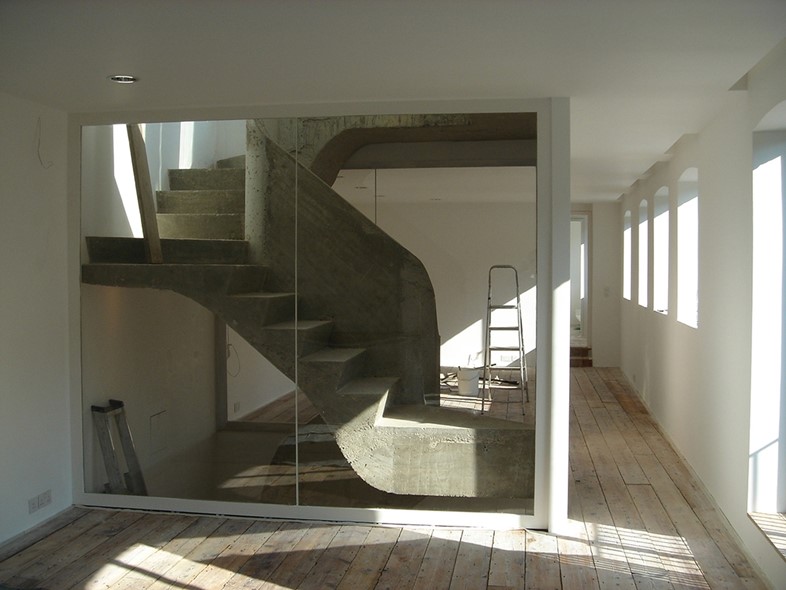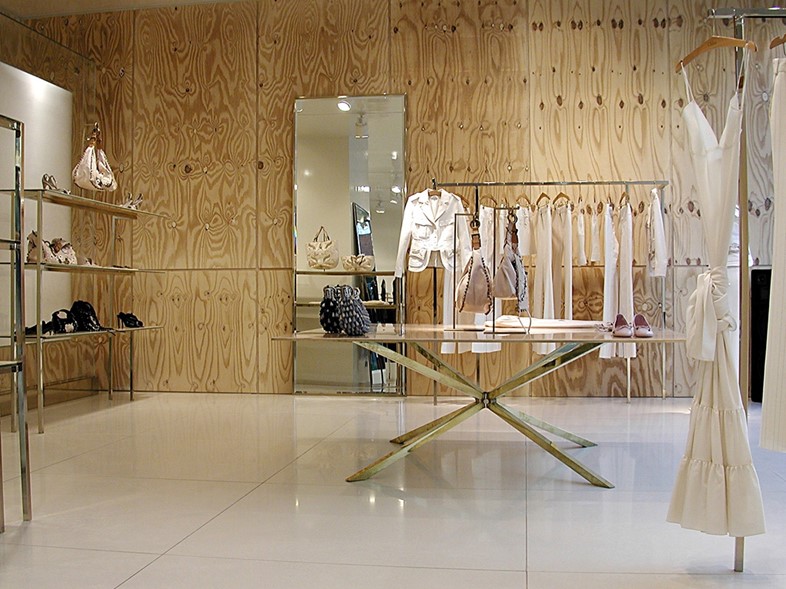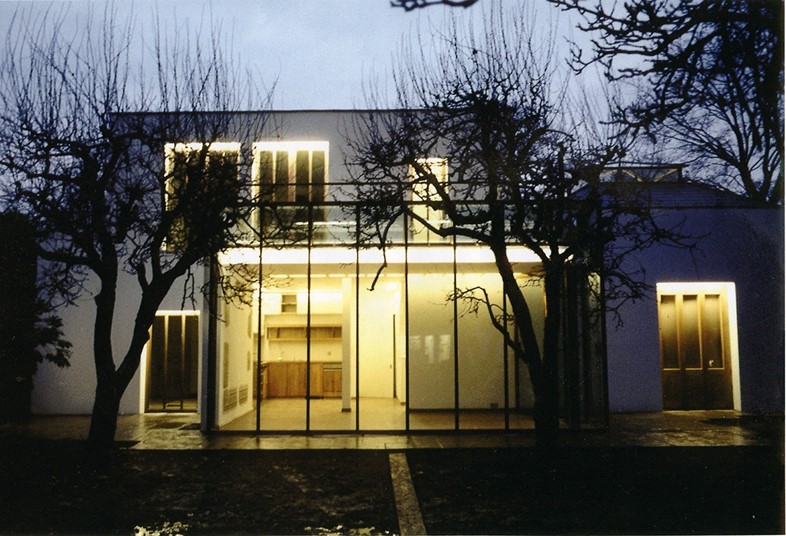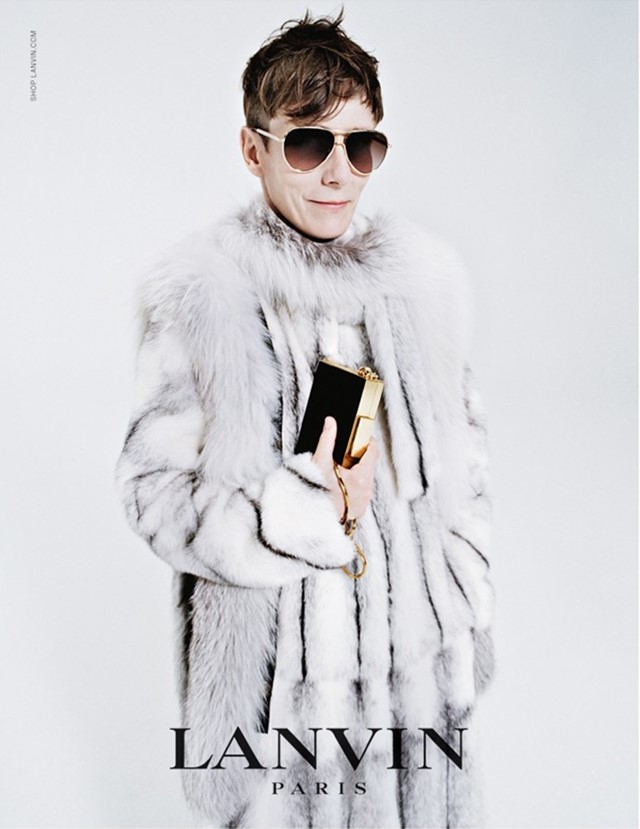Donatien Grau meets the stylist turned editor turned architect Sophie Hicks
Sophie Hicks started her career while serving as a stylist for Azzedine Alaïa and as fashion editor for Tatler and British Vogue. Since then, her work has expanded in the field of architecture: she designed the concept for Chloé’s shops and has collaborated closely with Paul Smith and Yohji Yamamoto in the conception of their stores. She also creates the scenography for exhibitions, such as, famously, Sensation at the Royal Academy in 1997.
How would you connect fashion to elegance?
There is no connection. Fashion is irrelevant to elegance. It is people who are elegant: the way they take clothes and wear them. They might choose something that comes under the heading of fashion – designer clothes – but they may not. The problem is that most designer clothes are not very elegant: I suppose they are made for commercial reasons....If you were dumped down naked in a fancy store, and you needed to get dressed, I think you would have quite a lot of trouble putting together an outfit that’s really elegant! I find that men are more likely to be elegant: Fred Hughes was extremely elegant. Manolo Blahnik is extremely elegant. It’s to do with their sense of style, their bearing, their presence.
"I find that men are more likely to be elegant. It’s to do with their sense of style, their bearing, their presence"
What is the role of history and art history in your conception of fashion?
I don’t see much connection there either. Sure, designers get inspirations from history and art history: sometimes it works, sometimes it doesn’t. But where does fashion come into art? Lucas Cranach’s naked lady is a beautiful fashionable look. But it doesn’t have anything to do with clothing.

Would you describe fashion as a language and a discourse, as Barthes did it?
Fashion is an amazing art form: it reflects the zeitgeist, the mood, without knowing it does. The fact that I don’t like most fashion that is made at the moment – I find it rather crude and rather crass – probably reflects the very confusing era we are living in. There is a vast gulf between the rich, the poor, the educated, the uneducated. Fashion has found itself caught-up in the elite – that side of the world.
"Fashion is an amazing art form: it reflects the zeitgeist, the mood, without knowing it does"
The word "intellectual" was coined in a time of great political distress. Does fashion have a political role, and if so, how?
No, I don’t think it does. However, politics can affect some fashion designers: Rei Kawakubo sometimes reflects the politics of her time incredibly subtly. You can take her collections on one level – beauty, the looks - and you can take them on another level, which she never explains. But if you are looking carefully, you can see what she was thinking about while she was designing the clothes: cosmetic surgery, Muslim extremism. She never verbalises it, but you can sense it, you see it.

How would you relate the concept of "fashion" to the one of "style"?
First, style is not a concept. And there is no relation. Fashion might be stylish or unstylish. You can pick out of it: but a person has to pick out of it. Then, stylishness seems to have disappeared from fashion. There are some recent exceptions: Tina Chow was extremely stylish.
What does fashion have to do with intellectuality ?
I have no clue.
"Fashion might be stylish or unstylish...but a person has to pick out of it"
You have worked with fashion and architecture, even with the architecture of fashion. Is there a connection between designing dresses and buildings?
They’re very different: you design dresses by instinct, by feeling the mood of what you want to create. To design a building is much more methodical, and very slow; and you have to solve more practical problems. There are some in fashion, with the fabrics, the cuts, the factories, etc. With the building, you have a huge amount more to solve. And the pace is very different: projects have a year and a half of gestation, and then they get built. With fashion you have little more than a few weeks. Designers have at least two collections a season. When I am working for fashion designers the fact that I used to work in fashion is very useful, because I have a feeling of what their instinctive sense might be. So I can understand how I need to encompass and somehow construct their thinking over four years, which of course they don’t know will be at the point when we start developing the project. I need to look at the overall sense of them; I need to try to nail the common thread, their spirit, their ethos, and still be along their track. That way, I am not way off track when the things get built, which is a year and a half after I’ve shown them the presentation drawings.

Another important part of your work has been arranging the display of exhibitions, on which work in a certain sense while conceiving the design for shops – such as Chloé. Is there a parallel between the way you present works of art and the way you display fashion?
It is completely different. The only similarity is focal points. If you are laying out an exhibition, you have to think carefully where the main focal artworks are going to go; you work very closely with the curator of the exhibition. The curator will know very well what the most important pieces are; and the designer might have a sense that some of their more important pieces are not actually the ones that are going to grab people’s attention. They might be academically interesting, but not visually compelling. You need to find a happy balance so that, when people get in, they go: “Oh wow”. You have focal points dotted around the exhibition and around those focal points you have series of artworks that relate to them. You show the way to the viewer. There is a similarity with shops: in a shop, you need focal points, whether it is a mannequin or a plinth with a handbag on it. You need to direct the customer, otherwise they won't know what to buy.
In two weeks Donatien will interview the philosopher Emanuele Coccia.
